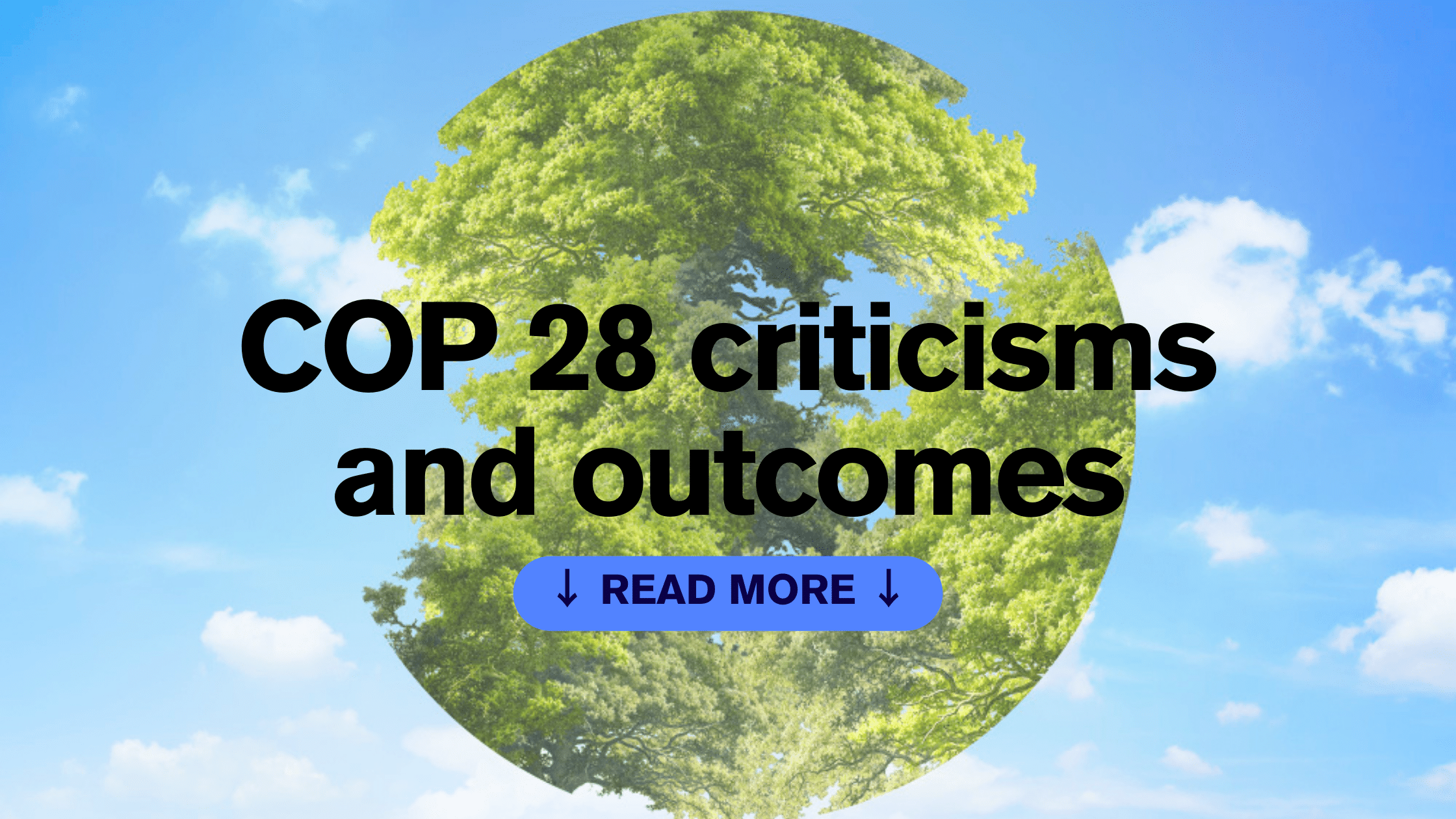As the curtains fall on COP28 in Dubai, the global community reflects on the summit’s achievements and, perhaps more prominently, grapples with criticisms labeling it as a farce. The discontent primarily stems from the draft proposal’s perceived shortcomings, notably the absence of a clear call for a fossil fuel phaseout. Despite the considerable achievements in funding mobilization and key pledges, the discontented voices raise a pertinent question: What are the actual outcomes of COP28, and do they align with the urgent need for decisive climate action?
Table of Contents
ToggleDraft Proposal and Fossil Fuel Phaseout: A Source of Dissatisfaction
One of the prevailing sentiments echoing through the aftermath of COP28 is the dissatisfaction with the draft proposal’s stance on fossil fuels. Critics argue that the reluctance to explicitly advocate for a fossil fuel phaseout dilutes the summit’s effectiveness. The call for a reduction rather than a more assertive phaseout has been met with skepticism, with many labelling it as a compromise that falls short of the transformative action required to combat climate change.
Key Achievements: Bridging the Gap or Falling Short?
While COP28 did witness significant achievements, including substantial funding mobilization and crucial commitments, the criticisms suggest a misalignment between the summit’s goals and the urgency of the climate crisis. Over $83.9 billion mobilized across diverse climate agendas signifies a financial commitment to addressing climate-related challenges. The pledges to triple renewables, double energy efficiency improvements, the Global Cooling Pledge, and the Oil &Gas Decarbonization Charter all contribute to a narrative of progress.
However, the discontented voices underline the importance of not merely tallying financial figures and pledges but assessing their real-world impact. Questions linger about whether the commitments are commensurate with the scale of the climate crisis and if they can genuinely catalyze the transformative changes needed to steer the world away from climate catastrophe.
Criticisms and the “Farce” Narrative: What’s Missing?
The characterization of COP28 as a farce by some segments of the global community unveils deeper concerns . The agreements reached at COP 28 were not ambitious enough to meet the goals of the Paris Agreement. For example, critics argue that the agreement on fossil fuels did not go far enough to phase out fossil fuels, and the agreement on climate finance did not provide enough funding for developing countries. Meanwhile, a record number of fossil fuel lobbyists were in attendance at COP 28, and were said to be able to influence the negotiations in a way that weakened the agreements. This led to accusations that the COP was rigged in favour of the fossil fuel industry.
The UNFCCC has been criticized for its lack of progress in addressing climate change, and COP 28 did little to improve the organization’s credibility. This led to accusations that the COP was a waste of time and money. The urgency voiced by climate scientists worldwide appears, to some, to be met with compromises that undermine the very essence of the summit’s purpose.
Real Outcomes: Assessing the Balance
In navigating the criticisms, it becomes imperative to acknowledge the nuanced landscape of climate diplomacy. COP28’s outcomes, while criticized, represent steps forward in critical areas. The Loss & Damage Fund’s establishment, the industry-led O&G Decarbonization Charter, and the global commitment to renewables and energy efficiency signify tangible efforts to address the multifaceted challenges of climate change.
However, the far-reaching impacts of these commitments will depend on their translation into concrete actions. The discontented voices emphasize the need for more robust and immediate measures, arguing that the urgency of the climate crisis demands unambiguous, transformative actions rather than incremental steps.
Charting the Path Forward
In the aftermath of COP28, the global community is at a pivotal juncture, tasked with a dual challenge that demands astute navigation of criticisms while acknowledging incremental progress. The dissatisfaction voiced by certain quarters serves as a clarion call for future climate summits to transcend mere compromises and, instead, deliver resolute commitments that match the colossal scale of the climate crisis. The true measure of COP28’s success lies not solely in the pledges made during the summit but in the tangible and swift actions that ensue. As nations grapple with the intricacies of climate action, contemplating the way forward becomes a collective endeavor. In an era where the repercussions of inaction are prohibitively high, the imperative for transformative change becomes an uncompromising mandate. The eyes of the world remain fixed on how nations will navigate this critical path, recognizing that the future hinges on proactive and decisive responses to the challenges at hand.
